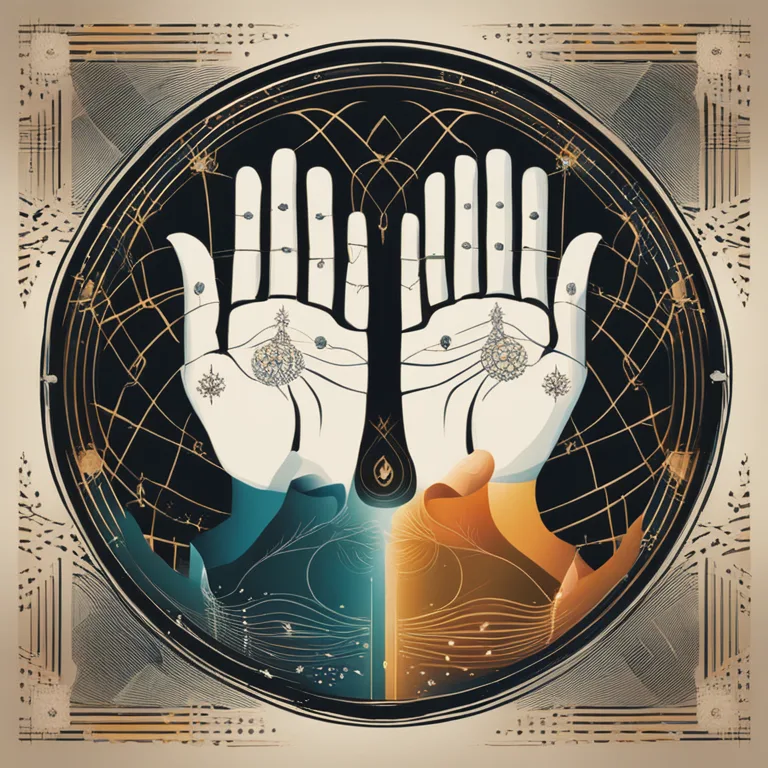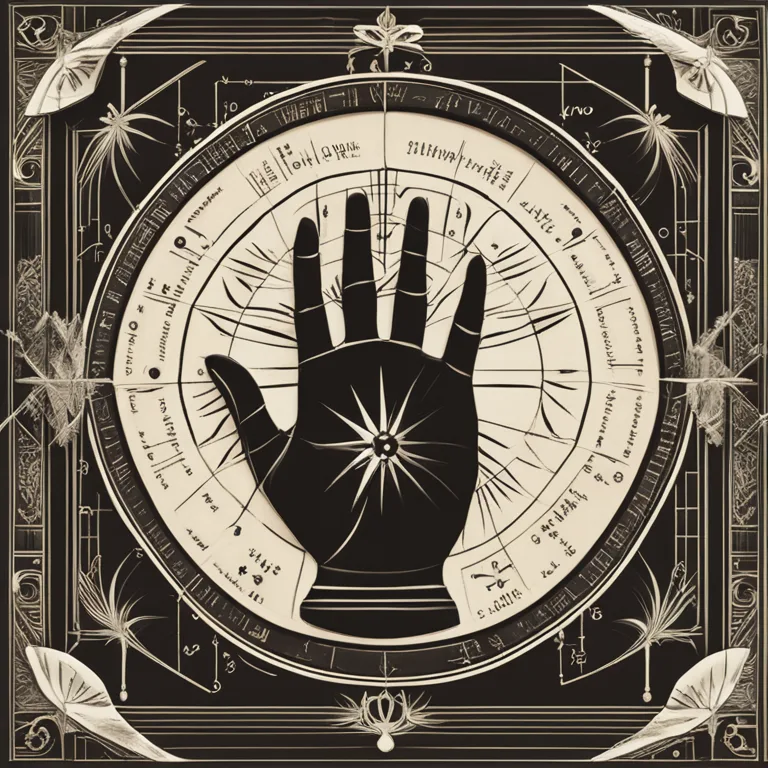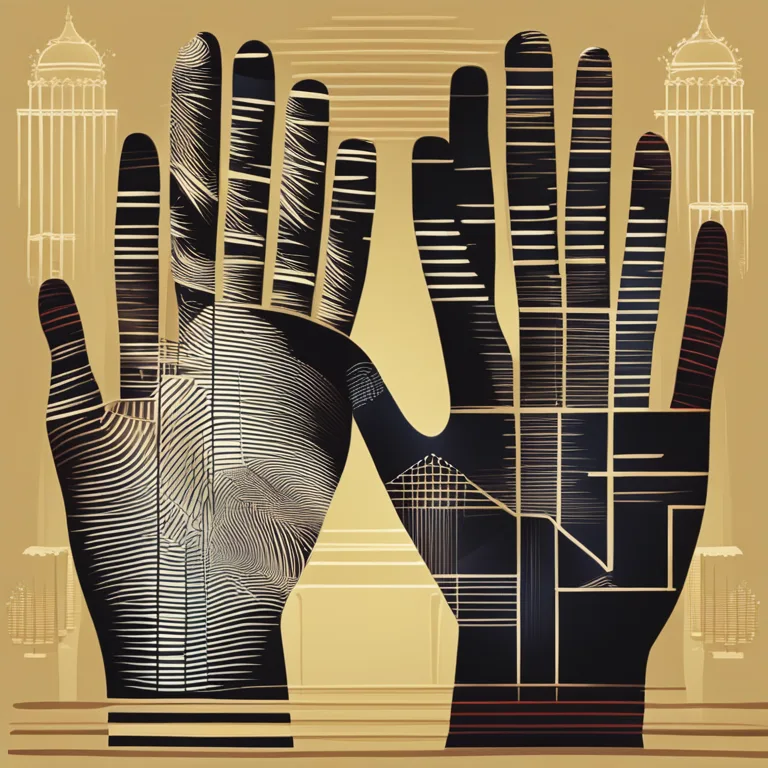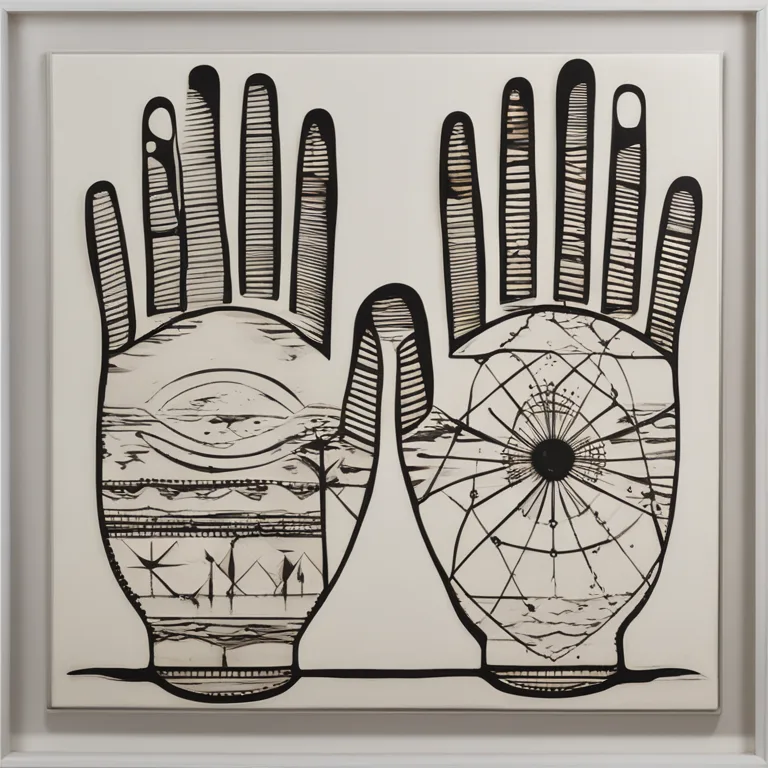
Left vs. Right Hand In Palmistry: Key Differences
Discover the significance of the left and right hands in palmistry, revealing personal and external influences in the lines of your palms.
article by Nora Pennington
Introduction to Hand Selection
Palmistry, or chiromancy, has intrigued humans for centuries, offering insights into personality and fate through the study of the palm. An integral aspect of this practice is understanding which hand to analyze – the left or the right. In traditional palmistry, both hands are relevant, yet they represent different spheres of influence. The dominant hand is often seen as the one we write with or use more frequently, and it is considered the hand of external action, reflecting our conscious choices, actions, and the impacts of our environment. On the other hand, the non-dominant hand is believed to convey our potential, and subconscious traits, suggesting inheritances, inner feelings, and karmic events that we come upon.

Decoding the Dominant Hand
The dominant hand is our 'active hand'. It sheds light on the life you have actively created through decisions and actions. These lines and markings are thought to change more over time than those on the non-dominant hand, aligning with the notion that we have the power to shape our own destinies. For instance, changes in the Life Line might reflect significant life transformations, while shifts in the Heart Line could relate to evolving relationship dynamics. If you're right-handed, your right hand is your dominant one, and likewise, if you're left-handed. Delving into the lines, mounts, and shapes of the dominant hand offers an insightful snapshot of your achievements and challenges you've faced.

Interpreting the Non-Dominant Hand
The non-dominant hand is often associated with personal traits, inherited characteristics, and potentials that are either developed or latent. By examining the non-dominant hand, palmists can interpret one's innate dispositions and hidden talents. This hand provides a baseline for potential life trajectories and serves as a contrast to the dominant hand's narrative of actualized experiences. Some schools of thought see this hand as the bearer of glimpses into our past lives, the aspects of which may be influencing our present existence. The lines and shapes here tend to be more static, symbolizing the aspects of life that are less susceptible to change.

The Impact of Cultural Perspectives
Different cultural traditions in palmistry may prefer one hand over the other when conducting a reading. For instance, some Eastern practices emphasize the non-dominant hand for women and the dominant hand for men, reflecting traditional gender roles and perspectives on active (masculine) versus passive (feminine) energies. However, many contemporary practitioners view both hands as equally important regardless of gender, arguing for a more nuanced interpretation that incorporates societal changes and emerging understandings of gender fluidity.

Hands in Harmony
Considering the collaborative story the hands tell, many palmists advise examining both the left and right hands together. This holistic approach allows for a comprehensive understanding of an individual’s past, present, and untapped potential. It's like reading different chapters of the same book – the hands differ yet complement each other, creating a fuller picture of an individual's life. During a palm reading, the interconnected narratives derived from both hands can offer guidance on how to navigate life's journey with the knowledge of one's intrinsic qualities and life experiences.
Modern Palmistry's Approach
In the constantly evolving landscape of palmistry, it is essential to adapt to contemporary beliefs and discoveries. Practitioners in 2024 and beyond approach hand selection with a more personalized methodology, often considering the individual's unique circumstances and questions to decide which hand to focus on. Moreover, advances in technology have started influencing palm readings, with apps and tools that can analyze palm prints and even track changes over time, thereby heightening the empirical aspect of this ancient practice.
Conclusion
In the enigmatic world of palmistry, the debate between the left and right hand is long-standing. Through understanding that the left hand represents what we are born with and the right hand signifies what we make out of it, we embark on a journey of self-discovery and reflection. As traditions blend with modern interpretations, the beauty of palmistry lies in its ability to provide unique insights – reminding us that our lives are a tapestry of innate traits and the choices that we weave along the way.
Published: 1/3/2024
Modified: 1/3/2024
More predictions
Come back here soon to learn more about yourself and your future


The Art Of Palmistry Readings
Delve into the mystical world of palmistry and discover how reading palms can offer insights into your personality and future.


The Secrets In Your Palm
Discover the intriguing world of palmistry and what the lines on your palm can reveal about your personality, destiny, and life path.


The Secrets Of Palmistry Revealed
Delve into the ancient art of palmistry and learn to read the stories etched in the lines of your hands.